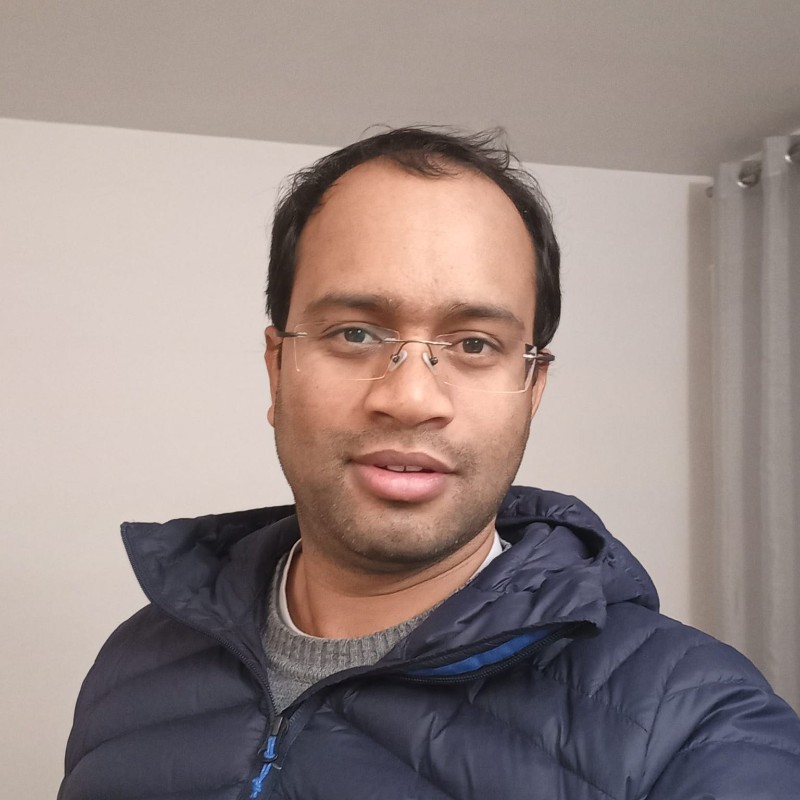Brief Bio
I am currently a Maître de Conférences (MCF, contractual) (equivalent to Asst. Prof.) at Université de Caen Normandie, affiliated with the Science Division ("UFR"), within the Department of Mathematics and Computer Science. I am also a member of the GREYC lab. Before that, I was a Chercheur at IRIT-CNRS, where I collaborated with the LILaC team for a short period. I continue to work with Dr. Andreas Herzig.
My research spans automated planning, decision-making under uncertainty, multi-agent systems, human-machine interaction, and heuristic search. I am particularly focused on human-machine interaction, multi-agent epistemic planning, and pathfinding problems under temporal and spatial uncertainty.
Previously, I worked as a postdoctoral researcher at LAAS-CNRS, specializing in human-robot collaboration and human-aware task planning with Dr. Rachid Alami, and as a short-term postdoctoral fellow at Ben-Gurion University. I was very fortunate to have worked with Professor Ronen I. Brafman, who also supervised my doctoral research during my time at the university.
I earned my Ph.D. in Computer Science from Ben-Gurion University, where I focused on planning for collaborative multi-agent systems (thesis).
Achievements and Recognition
Fellowships / Grants / Awards
- CIMI Fellowship for Postdoctoral Research (Individual Research Grant) Fellowship awarded from National Polytechnic Institute of Toulouse to support my independent research with Dr. Andreas Herzig at IRIT-CNRS, Toulouse, France.
- (Best student paper - honourable mention) A. Favier, S. Shekhar, R. Alami. Models and Algorithms for Human-Aware Task Planning with Integrated Theory of Mind. In proc. of IEEE RO-MAN 2023.
Newsworthy
- 2025/12: Our paper, titled A Conceptual Framework for Shared Autonomy (Shashank Shekhar, Laurent Jeanpierre, and Abdel-Illah Mouaddib), has been accepted as a poster and extended abstract at AAMAS 2026.
- 2024/09: I have accepted a position as a teacher-researcher---Maître de conférences (MCF)---at the Department of Computer Science and Mathematics of the University of Caen Normandie (France) and I will be conducting research activities at the GREYC CNRS UMR 6072 Laboratory.
- 2024/09: Our paper, titled An Epistemic Human-Aware Task Planner which Anticipates Human Beliefs and Decisions, has been accepted at International Social Robotics Conference (ICSR) 2024.
- 2024/05: A paper was accepted at HAXP 2024 (the ICAPS workshop), titled - Human-Aware Epistemic Task Planning for Human-Robot Collaboration.
Research Focus
Planning and Decision Making in Multi-Agent Systems
- MAP Under Uncertainty: Multi-Agent Planning (MAP) under uncertainty in the collaborative setting is a notoriously difficult problem. Often, they are modeled as Dec-POMDPs or its qualitative variant, QDec-POMDPs, a multi-agent contingent planning formalism. Solving Dec-POMDPs optimally is a combinatorially hard problem (NEXP-hard), and the qualitative model is also no easier in the worst-case but it scales better due to its non-probabilistic structure, at least when the actions are deterministic. The state-of-the-art QDec-POMDP algorithms (presented at ICAPS'19 & AAAI'21, respectively), are based on factored planning (developed originally for classical planning) and scale much better than the recently proposed Iterative MAP algorithm. I focus on enhancing the planners I have develpoed, enriching the existing benchmarks, and modeling a more complex class of MAP problems under partial observability and uncertainty. I also focus on developing new techniques (e.g., factored planning-based approaches) for even better scalability and to push the state-of-the-art further.
- Semi-Autonomous Decision Making: A key aspect of my research is the development of semi-autonomous systems, where robots and humans share control and collaborate to achieve common goals. This mixed-initiative autonomy allows robots to operate independently while considering the need for human intervention or control when necessary. Additionally, I investigate how robots can adapt their planning and decision-making processes by accounting for human behaviors, expectations, and cognitive elements such as trust, theory of mind, and higher-order reasoning. This work aims to enhance the interaction and cooperation between robots and humans in dynamic, real-world environments, ensuring a balanced and effective collaboration.
- Resilient and Adaptive Multi-Agent Pathfinding with Human Interactions: My research also addresses the challenges of multi-agent pathfinding in shared spaces where robots (and also humans) coexist. The primary goal is to ensure that robots can move efficiently and safely without interfering with human activity. This includes considering how robots can adapt their behavior in environments with both autonomous and human-controlled agents, ensuring smooth interactions and preventing conflicts during navigation.
Epistemic-Doxastic Logic, Belief Revision, and Epistemic Planning
- My research focuses on epistemic-doxastic logic, which allows reasoning about knowledge and belief in multi-agent systems. In settings like robot-human interaction, agents may hold different or false beliefs, requiring belief revision to update and correct their understanding when new information is available. This is especially important when agents have higher-order beliefs about others' knowledge or intentions. Through epistemic-doxastic planning, I develop methods for agents to plan and reason in environments where they must account for knowledge uncertainty or false beliefs. The goal is to enable robots to make decisions and collaborate effectively, even when they do not have complete or fully accurate information.
Academic and Professional Service
- Program Committee: AAAI 2021, 2022, 2026; ECAI 2024, 2025; HAXP 2025 (ICAPS WS); ICAPS 2026
- Proposal Reviewer: Israel Science Foundation (ISF) 2024
- Reviewer - International Journal of Social Robotics (SORO) 2024
- Reviewer - the IEEE International Conference on Robotics and Automation (ICRA) 2024.
- Reviewer - the IEEE Robotics and Automation Letters journal (2022, 2023, 2024)
- Reviewer - the Springer Nature journal for CS (2022)
- I co-organized the Workshop on Distributed and Multi-Agent Planning at ICAPS 2020. I also served on the Program Committee.
Miscellaneous
- Quote by Alexander Grothendieck (one of the greatest mathematicians of the 20th century)
